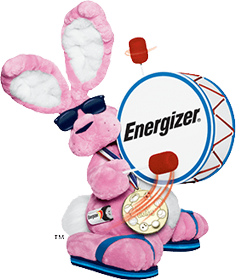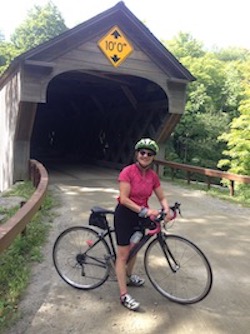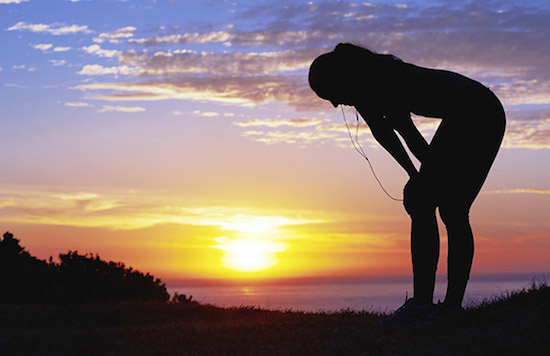I just spent the weekend watching a six year old run around like a nut. From the moment she got up until she went to bed at night, it was constant motion. Running, jumping, spinning — never a stop, never an I’m tired.

The Energizer Bunny. Which I am not.
Which led to my question: Where does she get her energy?
The simple answer is she’s a kid. Truly, that’s a big part of it.
But as far as my energy level goes, I wouldn’t mind being a kid again. I’d love to have an infinite amount that I could tap into to charge through skiing, biking — hey, just life in general. Short of stepping into a time machine, that ain’t going to happen. I’m [mumble, mumble] years old, and believe me, it does get harder. I’m just not the Energizer Bunny I used to be.
Nonetheless, there are some things you can do to keep your energy levels up:
Get enough sleep: For me, this is a real challenge. I’m a chronic insomniac — I’ve been that way my entire life — and at this point, I’m pretty much used to it. On a really good night I can get six hours of sleep and still function pretty well. But not everyone can do that. According to the Sleep Foundation, teenagers (14-17) need 8-10 hours; younger adults (18-25) 7-9 hours; adults (26-64) 7-9 hours, and older adults (65+) 7-8 hours.
Get your hormones checked: Hormones are chemical messengers secreted by the body’s endocrine glands that travel through the bloodstream and tell various systems what to do. As women get older, our bodies produce lower levels of hormones like estrogen and progesterone. And that can lead to fatigue. If you’re tired on a regular basis, it could be a hormonal imbalance.
Eat right: We’ve all heard about how sugar can give you an extra boost of energy. Unfortunately, this can fade pretty quickly and cause a slump that can make you feel drained. Carbs can also make you feel drained, for pretty much the same reason. Too little protein can cause fatigue, too, since it stays in your body longer. Some experts suggest we eat what are called low-glycemic foods, such as beans, non-starchy veggies, nuts, and whole-grain products, to keep your blood sugar in balance and supply the reserves you need to draw on throughout the day.
Don’t rely on highly-caffeinated, high-calorie energy drinks. Drink water, instead. Lots and lots of water. If you don’t drink enough before or during your workout, you could feel weak, dizzy, confused, or sluggish. Energy drinks contain large amounts of caffeine, added sugars, vitamins, and legal stimulants in high concentrations.
Exercise: You don’t need a lot to do a lot. This from Prevention Magazine explains it better than I could: Exactly how exercise unlocks muscle’s anti-aging potential is still a bit of a mystery, but it appears that aerobic workouts — whether you’re walking on the treadmill or taking a spin on your bike — spark the cellular system that creates new mitochondria. As your muscles demand energy, the mitos themselves, along with enzymes in the tissue, switch on genes that start transcribing mitochondrial DNA. The more you stick with it, the more you make, and the more efficient your muscles become at burning fat and providing energy. It doesn’t take much to make an impact: Research shows that after as few as 3 to 7 days of brisk walking for 45 minutes, you’ll start to spur the growth of new mitochondria.
Qigong: Sometimes the best solutions are the oldest. Qigong was developed in China more than 3,000 years ago and is still practiced today. Basically, it’s a holistic system of coordinated body posture, movement, and breathing that’s used for health, spirituality, and martial arts training. I use a Qigong exercise that claims to clear the energy pathways throughout your body, and though I was a bit skeptical at first, I actually think it helps. Here’s the short, 10 minute routine I use before biking:
Get a check up: The body is a complex machine, and there are stressors in our lives and bodies we may not even be aware of. If you find yourself chronically low on energy, you might want to visit your doctor.




